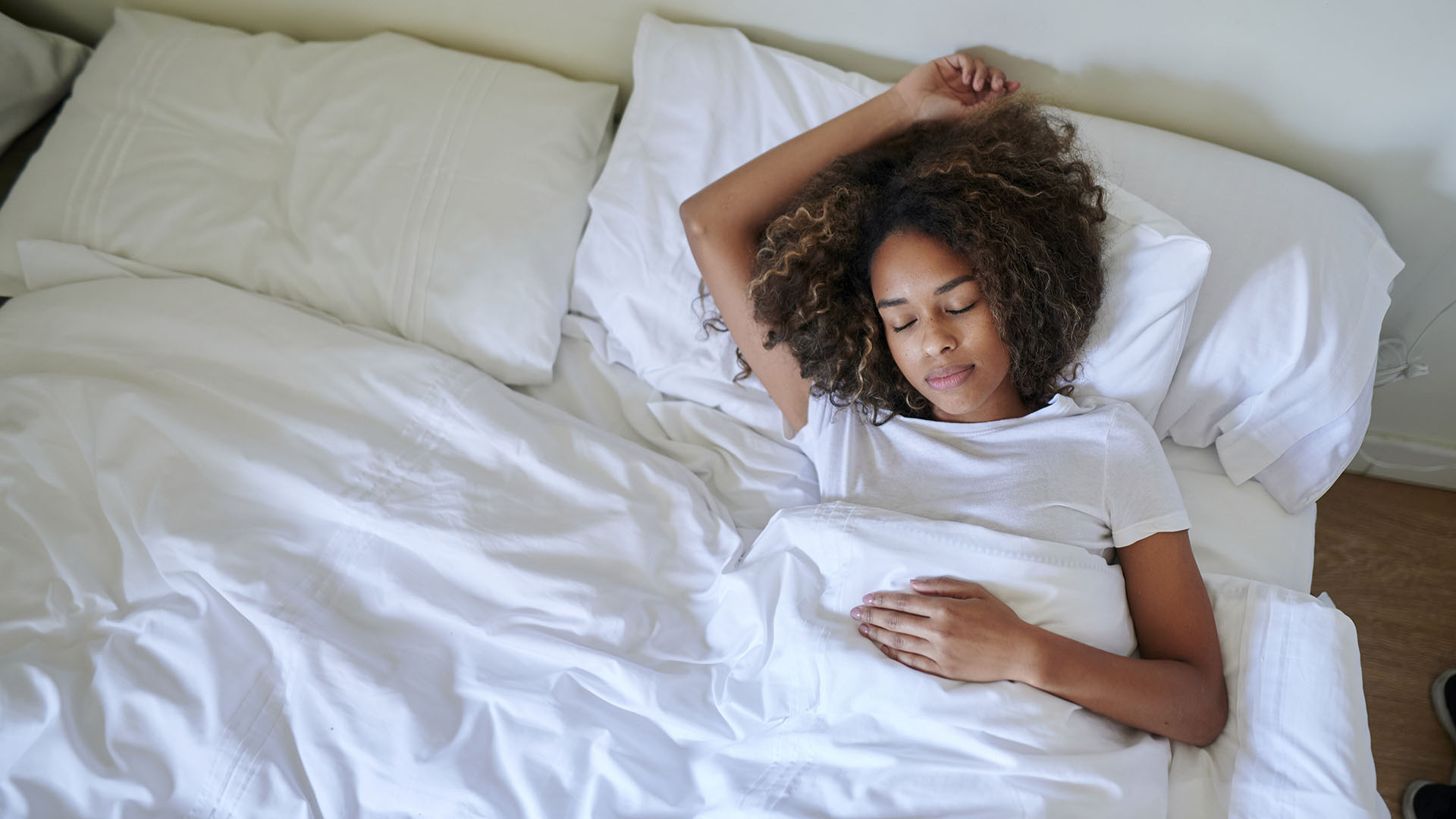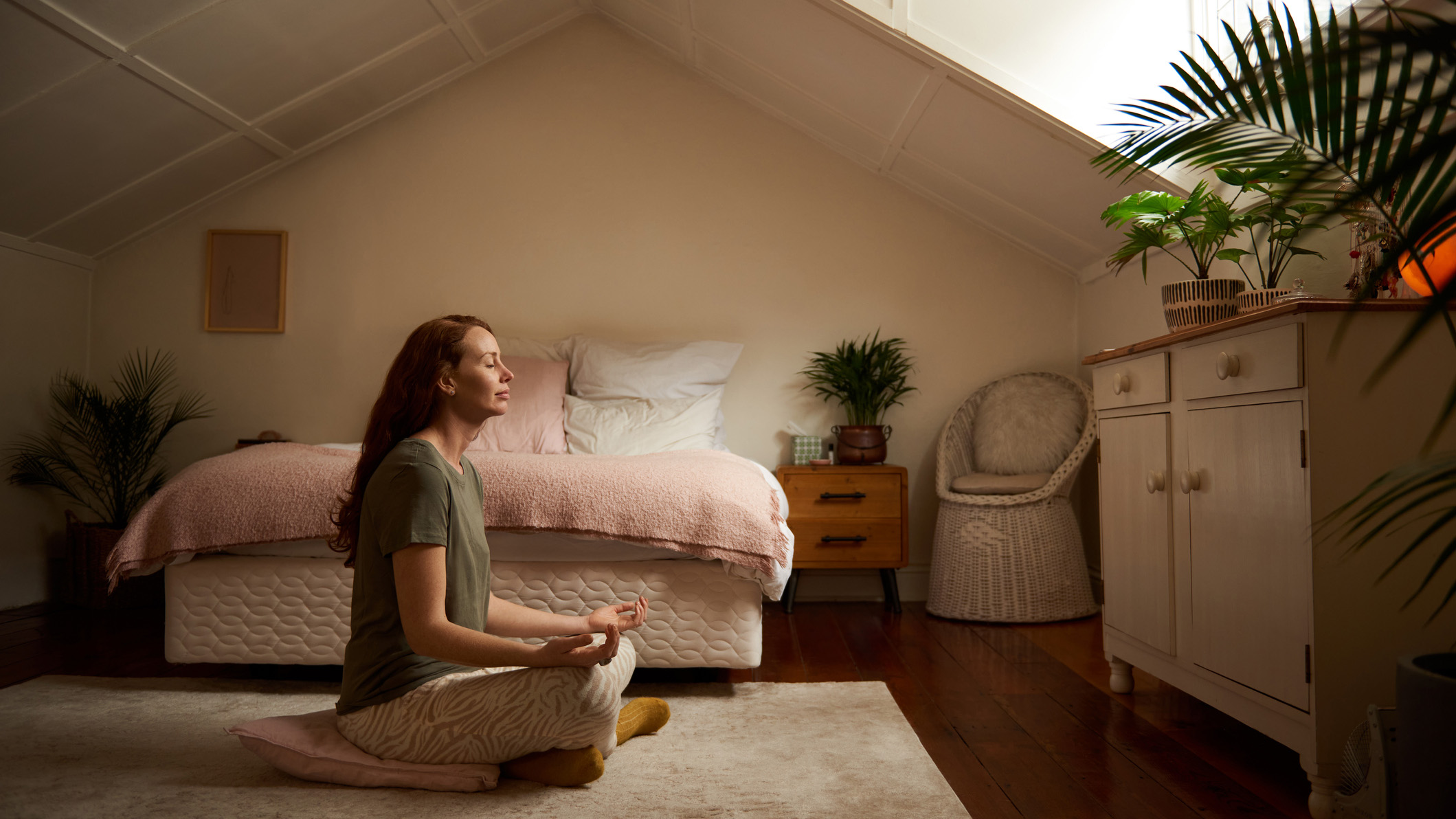Wim-Hof vs 4-7-8 breathing technique: Which is better for falling asleep?
We compare popular breathing exercises to see which can help you fall asleep faster — and wake up more energized

The 4-7-8 breathing technique for sleep is often recommend as an easy calming exercise for those who struggle to drift off, but how does it compare to the Wim Hof method? And which controlled breathing exercise is better at waking you up?
Many factors can affect how well we sleep – from having the best mattress for your body to picking the right temperature – but breathing techniques are a free and easy way to add some calm to your bedtime. The 4-7-8 method is particularly good at easing sleep anxiety, but if you're hoping for relaxed mornings, try the Wim Hof method.
Both methods are hugely popular breathing techniques for sleep, encouraging conscious breathing to relax the body and mind. Here we'll explore how to use both exercises, and when to incorporate them into your day for better sleep.
What is the Wim Hof breathing technique?
The Wim Hof method was created by Dutch extreme athlete and motivational speaker Wim Hof. Hof believes that using his breathing technique can help reduce stress, as well as improve sleep and even boost recovery times. This controlled breathing technique is part of Wim Hof's "three pillars" method for stress relief, alongside cold exposure and commitment.
To use the Wim Hof method, follow these steps:
1. Find a comfortable position to sit or lie so your belly can fully expand.
2. Close your eyes and clear your mind.
3. Inhale deeply through your nose or mouth, pushing your belly outwards.
4. Gently exhale through the mouth.
5. Repeat for 30 breaths.
6. After exhaling the final breath, hold until you feel the urge to breathe again.
7. Inhale one large breath and hold for 15 seconds.
8. Repeat the cycle another two or three times.
Throughout the process focus on your breath and try not to let your mind wander. Hof encourages playing around with the number of breaths and the tempo to find a version of the technique that works best for you.
What is the 4-7-8 breathing technique?
The 4-7-8 breathing technique is a simple exercise designed to ease stress and anxiety. It's become popular on TikTok recently as a method for falling asleep fast and encouraging calm in stressful situations. An accessible method that encourages you to focus on the ins-and-outs of your breath, here are the 4-7-8 steps to follow:
1. Get into a comfortable position.
2. Place the tip of your tongue behind your upper front teeth.
3. Exhale with a 'whoosh' sound through the mouth.
4. With your mouth closed, inhale through the nose for four seconds.
5. Hold the breath for seven seconds.
6. Exhale through the mouth for eight seconds, making a 'whoosh' sound.
7. Repeat the cycle three to four times.
@thesleepdoctor ♬ original sound - Sleep Doctor
Our 4-7-8 method guide gives a full breakdown of why the technique works and how to use it, but the steps above outline the basics of the technique. Regular practice is encouraged to master the 4-7-8 method, so try to incorporate the routine into your day – particularly at moments of stress.
Wim Hof vs 4-7-8: which is best for falling asleep?
If you're looking for a technique to help you feel calm and relaxed in bed, opt for the 4-7-8 breathing exercise. The simple method encourages you to focus on your body and breath, helping quiet racing thoughts at bedtime so you can drift off easier.
These soothing breath cycles can also be used to help you fall back to sleep if you wake up in the middle of the night. Instead of tossing and turning, try redirecting your thoughts towards your breathing.
While the Wim Hof technique is intended to benefit sleep, it's not recommended before bed. This is a more intense method than 4-7-8 breathing, which might end up having the opposite effect – rather than falling asleep, you now feel motivated to start the day.

Breathing techniques are easy to incorporate into your nighttime routine, and there are plenty to try. So don't feel discouraged if neither method works for you. In fact, one of our sleep experts tried using the 4-7-8 technique to fall asleep, and was unhappy with the results. Our guide exploring breathing exercises for sleep can help you discover a method that benefits you.
Wim Hof vs 4-7-8: which is better at waking you up?
While the 4-7-8 method can help you fall asleep, Wim Hof recommends using his breathing exercise at the opposite end of the day – first thing in the morning. He advises practicing the technique on an empty stomach, so it's a great activity for just after waking up, before looking at your phone. Wim Hof also recommends cold water exposure, and an icy shower is another way to wake yourself up (although less pleasant than repetitive breathing).
The 4-7-8 method can also be used in the morning, particularly if you're feeling stressed or anxious about the day. However, as a calming technique you might find it a little harder to get out of bed after a few minutes of 4-7-8 breathing, compared to waking up with the Wim Hof method.
How can breathing exercises help you sleep?
Research has shown that using slow breathing techniques (in addition to sleep hygiene and relaxation techniques), can be a "powerful tool in combating insomnia". Deep breathing signals to the brain and the body that it's time to relax, helping you calm down before drifting off.
Breathing exercises can also help ease the racing thoughts that have a tendency to fill the brain when you're trying to sleep. By directing your mind toward your body and breathing – not your stressful thoughts – you can change your focus and feel relaxed.
Sign up to get the BEST of Tom's Guide direct to your inbox.
Get instant access to breaking news, the hottest reviews, great deals and helpful tips.

Ruth is a staff writer at Tom’s Guide, covering all things mattress and sleep. She has a deep interest in the link between sleep and health, and has tried enough mattresses to know the right bed really can make a difference to your wellbeing. At Tom’s Guide she writes to help people sleep better, from how-tos to the latest deals to mattress reviews, and has interviewed an array of specialists who share her passion. Before joining the team at Tom’s Guide, Ruth worked as a sleep and mattress writer for our sister website, TechRadar.
